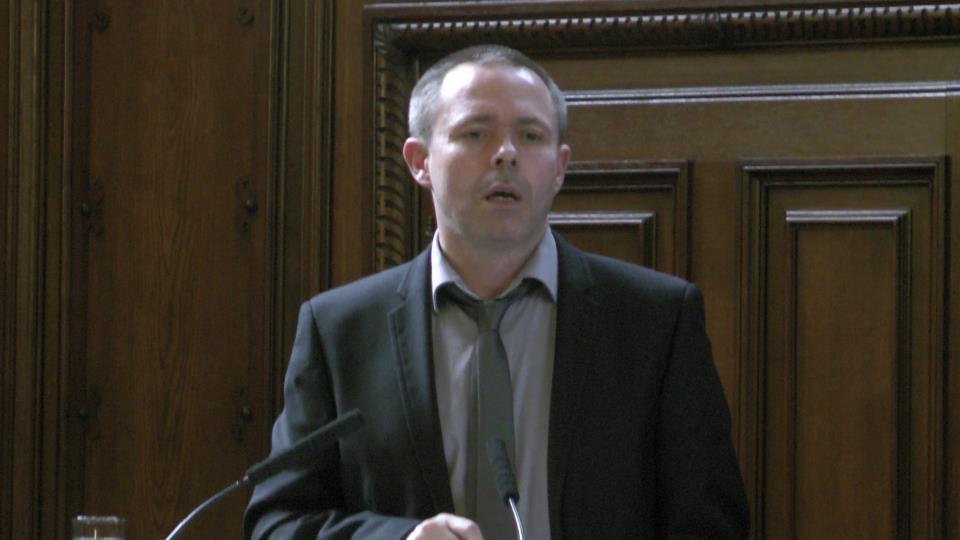Co-curating open community archives and collections
Tuesday 13:00-14:30 (6), Mezzanine Balcony
Type: Poster
Theme: Building and linking communities of open practice
#oer14 #abs118Authors
Dr Martyn Hudson, Research Associate Co-Curate, Newcastle University [email protected]Professor Megan Quentin-Baxter, Director and Professor of Health Professions Education, Newcastle University, [email protected]
Professor Eric Cross, Dean of Cultural Affairs, Newcastle University, [email protected]
Abstract
The question of the tenuousness of data and the problems in perpetuating online, open archives have been a central feature of debates about digital curation of community assets such as photographs, letters, artefacts, etc. (Higgins 2011). This paper re-situates that debate by considering what we might call ‘dark objects’ emerging into visual, ‘light archives’ where the artefacts themselves are curated, recorded, and annotated or connected by the communities of practice from which they emerged (Waterton 2010, Hudson 2000). Importantly, it also points to questions about the transferability of findings from communities into open access digital platforms that other communities might learn from.This idea of meaningfulness and significance becomes more complex when we examine the kinds of artefacts that communities want to record which might include intangible phenomena such as dialect, sound, images and knowledge, taking three broad forms. Firstly, the identification of artefacts which communities define as of some importance to them and are in danger of elimination – either because they are objects of ‘insignificance’ (bric a brac), or because of the passing of memory (the death of community members), or because objects and forms of knowledge have been so intangible that until the advent of digital archiving it has been difficult in terms of retention (dialect words, sounds of nature, musical virtuosity), or because large scale data sets central to human history and biology have not been available to communities and their self-definitions (genetic information and material supporting communities to think both about their health futures and their past identities). Secondly, what we might call the technics of meaningful co-curations: the kinds of networks and institutional relationships that have to be originated and formed in co-production with self-identified communities. Thirdly, the importance of what we can call the ‘secondary elaborations’: the narratives, annotations, digital conversations, wikis and connections that are structured around the artefacts present within collections. All of these questions, when profiled in open access archive forms will support new communities of practice to think about co-production more effectively.
We will explore the initial challenges of the AHRC-funded Co-Curate North East project at Newcastle University with partners in local museums, schools and community groups. Examining the role of multi-disciplinarity around arts, education, medicine and heritage (Boutard, Guastavino, and Turner 2013) we develop new ways of thinking about curation, production and the kinds of learning and archival platforms that can be developed as hardware becomes obsolete and communities change.
References
Boutard, G., Guastavino, C. and Turner, J. (2013). A digital archives framework for the preservation of artistic works with technological components. The International Journal of Digital Curation 8:(1), 42-65.Higgins, S.(2011). Digital curation: the emergence of a new discipline. The International Journal of Digital Curation 6:(2), 78-88.
Hudson, M. (2000). The clerk of the forester’s records: John Berger, the dead, and the writing of history. Rethinking History, 4(3), 261-279.
Lynch, M. (1985) Discipline and the material form of images: an analysis of scientific visibility’ Social Studies of Science, 15, 37-66.
Waterton, E.(2010) ‘The advent of digital technologies and the idea of community’ Museum Management and Curatorship 25:1, 5-11.
Funding acknowledgements
Arts and Humanities Research Council
Further details
Keywords: Archives, Open-source, heritage, communities, arts, education
Dr Martyn Hudson, Research Associate, Newcastle University
Twitter abstract: Looking at the questions of open source archives in communities of heritage
